“One life is all we have and we live it as we believe in living it. But to sacrifice what you are and to live without belief, that is a fate more terrible than dying.” -Joan of Arc
Regardless of what intrinsic differences any person or group of people have from another, everyone deserves to be treated as an individual, afforded the same opportunities to pursue their passions, goals and dreams, and evaluated on the merits of their performance. Although this is not yet the way the world works, I am confident that many strides are consistently being made in the right direction, and I was overjoyed earlier this year when I came across the following international news story.
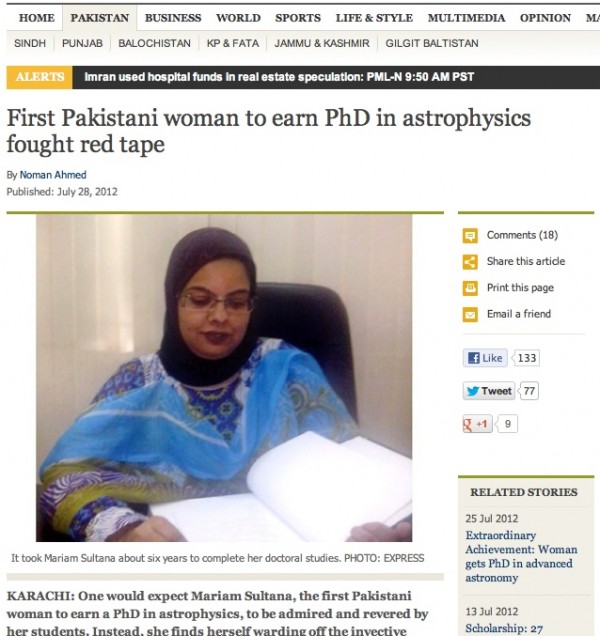
Image credit: The Express Tribune with the International Herald Tribune, http://tribune.com.pk/.
For the first time in Pakistan, a woman has earned her Doctorate in Astrophysics. I felt a personal connection to this story since astrophysics is my specialty, and it's important for everyone to see more examples that great scientists in general come from all backgrounds, races, religions, countries, and genders. If you have a passion to be a scientist, I've always encouraged everyone to follow it and become whatever it is you want to, to the best of your abilities.
But this story was more than just an important milestone and step forward; when I saw it, I felt it was an opportunity to bring a much richer story to the world. There's a story here -- not of "the first Pakistani woman to get her PhD in Astrophysics" -- but of a human being who followed her passions to achieve her goals, the struggles she faced, the help and support she had along her way, and... a window into the unique life of a real person. So I approached her in July and asked her if she'd be willing to do an email interview with me. She not only agreed, but encouraged me to ask as many questions as I wanted; I solicited them on twitter, google+ and facebook, and chose many of them to ask her.
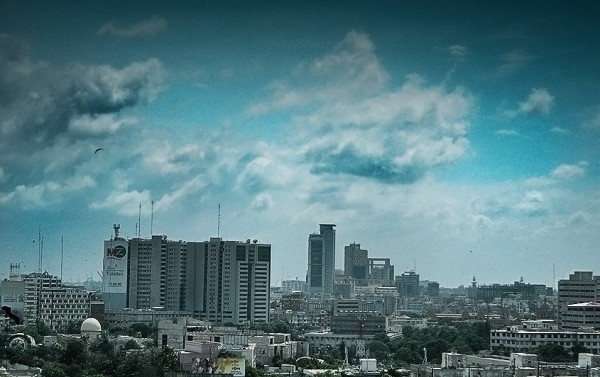
Image credit: Flickr user Kashiff, http://www.flickr.com/photos/15025651@N08.
Mariam Sultana is from Karachi, the largest city in Pakistan, and has graciously provided some insightful answers about her experiences and perspectives, and has agreed to share them with the entire world. I am overjoyed and privileged to share with you the following exclusive interview with Mariam Sultana, astrophysicist!
![]() You've recently gotten your PhD in extragalactic astronomy. What has your research been about?
You've recently gotten your PhD in extragalactic astronomy. What has your research been about?
My research is about the formation theory of ring-like structures in a disk-like self-gravitating system in the background of a non-stationary Universe.
How did you first get interested in astronomy?
I have done a Masters in Applied Mathematics in 2004 from the University of Karachi. So I am a Mathematician but Astronomy has been my passion. The stretching scheme of stars in the sky has always fascinated my imagination. In my view, we have been sent in this world to explore the beauty of the cosmos. This has been a great source of inspiration for me and has brought me into this field.
Out of all the possibilities, what is it that led you to study your particular branch of astronomy?
Unfortunately neither do we have experts of Astrophysics in our country nor are we equipped with high resolution machinery so as to observe the changes taking place in cosmos. Working in this kind of an environment is like a dream of an insane [person].
But my dream of working in this field was fulfilled when Higher Education Commission (HEC) hired Dr. Salahuddin Nuritdinov as a Foreign Faculty in Pakistan. Dr. Nuritdinov has also served as a Chairman of Astrophysics Department of National University of Uzbekistan. Fortunately I attended one of his seminars and I immediately felt that he is the right person to work with and so I started working with him.
Do you have a favorite paper you've written or topic that you've worked on?
Please see http://adsabs.harvard.edu/abs/2008Ap.....51..410N
Ethan's note: that paper can be found here; the first page can be read below.
Professionally, what are the biggest questions in your field that you would most like to see answered?
I want to learn more and more about the cosmos. I am so keen to know about how everything in this cosmos started and how it is predicted to come to an end. I want to know if life exists anywhere [in] this beautiful Universe. And if life exists what kind of a life is it and many such questions.
What kind of difficulty did you experience during your scientific learning process, due to your gender?
My entire education is of Karachi. I have been associated with two universities for my higher education. First being University of Karachi and second Federal Urdu University. In University of Karachi almost 70% of enrolled students are female and 30% are male. In this kind of a situation being a female always brings a positive edge. In University of Karachi, females are dominating and they sometimes even become sarcastic about it. Females also have the advantage when it comes to observing celestial objects. We are used to observe it in early hours and men have to wait and stay back till late at nights.
Who have been your biggest supporters throughout your studies? (I assume Dr. Salakhutdin Nuritdinov was a huge influence; can you tell me about your professional relationship with him?)
There is no doubt in it that what I am today is because of those who have always been a great support for me. First and foremost my parents who in spite all of the difficulties and sarcasm gave me a complete environment where I worked peacefully. I even had to work for so long sometimes that I only came home for rest. Even in those times they had always encouraged me to work harder and harder. In our society our parents always face this dilemma that if they have daughters they should get married as soon as possible. My parents kept me away from all of it and faced these things themselves.
Second, one of my mentors Imaduddin had also been a great source of motivation for me. He always facilitated me with the foreign books and gave them to read.
As far as Dr. Nuritdinov is concerned, he is absolutely a great teacher. He taught me in real terms what research is all about and how it is done. Whenever I confront any challenging situation, he always said to me, “Miss Mariam, you are a strong lady, so don’t give up!” His words of encouragement are always with me. Despite a different language, his love for knowledge, fatherly love for students and passion for his students made him an inspirational teacher. The time when I worked with him was one of the best and quality time that I have spent on research and he provided me with all the available research resources from Uzbekistan as well.
How did you handle the isolation that comes with being the first Pakistani woman to achieve this degree?
Unfortunately we have such elements in our country who want to have their monopoly on all the organizations and for this purpose they always create hindrances for those who want to achieve something in their respective fields. Similar elements created obstacles for Dr. Nuritdinov as well and forced him to move back to Uzbekistan. He tried his best to provide a complete environment for research but unfortunately he became a victim of red tap-ism and returned to Uzbekistan in December 2010. By that time I had completed my research but thesis compilation was left.
I faced many challenges in compiling and finalizing the documentation work at University of Karachi. And because of this documentation my PhD was delayed for 2 years. If there are any difficulties that I faced in my PhD, they are because of impractical rules of M.Phil /PhD posed by University of Karachi. I had to request Dr. Shahid Qureshi, who was Chairman of Institute of Space & Planetary Astro Physics at that time to help me complete my thesis.
Why did it take so long for a Pakistani woman to get a PhD in astrophysics? What are the barriers?
Because of lack of experts in Astrophysics, I am the first Pakistani women in this field. Moreover, men who have completed their PhD in this field are settled in foreign countries. This fact leads to the reason that this subject is taught in very few universities at Masters Level. We don’t even have a Department of Astronomy or Astrophysics in Federal Urdu University (I am Assistant Professor in Department of Mathematics there).
You have been quoted as saying, “The students somehow confuse my field of study, extragalactic astronomy, with fortune telling or palm reading. Their parents do the same thing and advise their children to stay away from the subject.” Where do you think this sentiment comes from, and what message would you like to send to young people about astronomy?
Illiteracy is one of the biggest issues of Pakistan. Because of illiteracy, people cannot distinguish between astronomy and astrology. This may also be because of the fact that they have only seen so called astrologers in TV shows and fortune-tellers at different corners of roads in their daily lives. They have never come across real experts of astronomy in their daily lives. In this situation both have the same value only. Even our students pose the first question that why are we teaching Astrology? Then we have to gradually explain to them that we are teaching Astronomy, which is the study of stars, and not about the effects of stars on our lives. Sometimes I modestly say that I am even unaware of the names of 12 zodiacal signs.
Do you think that gender inequality in your country is more strong than any other place in the world ? Why?
Neither I think like that nor do I see such thing in my city. There are many cities and villages in Pakistan. Maybe gender inequality prevails in rural areas and women face many challenges but there is no such thing in Karachi or in other big cities of Pakistan.
What advice do you have to anyone that would like to promote astronomy and astrophysics in countries such as Pakistan?
In countries like Pakistan there are many hindrances in advance sciences like Astrophysics or Astronomy. First and foremost obstacle is lack of awareness regarding these fields. Therefore we must first spread education and then we need to aware our people about this field. In Pakistan, some people are working for Astronomy because of personal interest and yes they are doing quality work. They go to different schools and demonstrate about astronomy. They try to observe every astronomical event and also celebrate space week with great zeal and energy. These little efforts will definitely help in bringing a change. But any country can only produce experts of Astronomy / Astrology with eradication of poverty and illiteracy.
What do you see as the future for girls and women who are interested in science in Pakistan?
In Pakistan, girls are excelling in all the fields of Science, Arts or Sports very rapidly. In my opinion girls will be working equally with men in near future. You must have heard of a girl Arfa Karim. (Ethan's note: link here.) She is the youngest Microsoft Professional and is Pakistani. I know of many girls who are indulged in higher studies of Science and are supporting their families. The only difference in developed countries and developing countries is the fact that in developed countries there are many people to guide you and you already have things set up for you. However in developing countries like us, we have to pave our own ways and have to create opportunities for ourselves.
What ways would you like to see girls and women encouraged to enter your field?
I want more and more girls to come in this field and see that the moon with which men compare us does not stand any chance before us. Pun intended. I have paved way for them. I am positive that girls will definitely come in this field. I have three girls working on M. Phil Thesis under my supervision. I am sure as time will pass we will also create opportunities of education for our women living in rural areas.
Pakistan has a reputation in the USA as being an extremely Muslim nation with many negative attitudes about science. What was your experience, as a scientist, with religion? Was there ever a conflict between religion and science for you?
Most importantly the society where we are dwelling has more powerful tool than human thoughts and that powerful tool is media. Media only shows us what it wants to show and we believe in it. You see Pakistan as it is portrayed through media and I see America as my media shows it.
Ethan's note: Karachi, a city of 13+ million people, doesn't look so different from other major cities across the world in a plethora of ways.
As far as science and religion is concerned, I don’t think there is any conflict between them. No religion and science can ever have any conflict be it Jewish, Christianity or Islam. We all believe that there is a Supreme Power who has created this universe so definitely the Creator has more knowledge and power than His creation. And therefore, all the Holy Books are to be respected. This is my belief. Science is my passion and there is no comparison between belief and passion. And there will never exist any conflict. As far as I know, all religions promote and emphasize learning and acquirement of knowledge. Islam also believes and preaches the same. If this would have not been the case, you would not find the best books on science by Omar Khayyam, Al-Tusi, Ibn-ul-Haithm, Ibn-e-Sina, Farabi, Al-Kundi, Jabir Bin Hayan and Al-Khwarzmi. The astrolabe was invented by a Muslim woman Maryam. But yes this is true that in every era there exist certain elements that are against scientific developments as faced by Copernicus and Socrates. But again this by no means can be a source of conflict between science and religions.
If you could "wave a magic wand" and things would be different, how would you change the current educational system in Pakistan? What support structures would you add?
I would like to promote practical knowledge in Pakistan so that people can implement and apply this knowledge in daily lives. I will try to link universities with industries and create such a strong learning environment where students can enhance their skills and explore their inner creativity.
Was there anyone that you looked to as a role model? Where -- if anywhere -- did you find support and encouragement?
My teacher Imaduddin, who supported me in every step of my life. He inspired me to discover new motives of life. He taught me to face challenges happily and boldly. In my subject, I am very much inspired by MIT Professor Dr. Walter Levin. I love his way of teaching. I want to teach the way he teaches as it is very unique. I learn a lot from his videos and sometimes we communicate through email too. He is a very good person and has written a book as well.
Where would you like to be five years from now?
I want to see a big observatory of Astrophysics in my university in coming five years where I feel glee and proud seeing my students working. I also want to do Post Doc in the coming five years.
Finally, is there any message you would like to send to anybody? (Whether Pakistan, women across the world, or anyone who wants to know more about you and your story?)
I would like to give this message that the cosmos is a great source of energy. If you give it positive energy, it will multiply it many times and return the energy. Therefore, think positive and make your life a bed of roses by respecting others point of view positively. Similarly, dream the highest for yourself and work hard. Believe in yourself that a great success is awaiting your way.

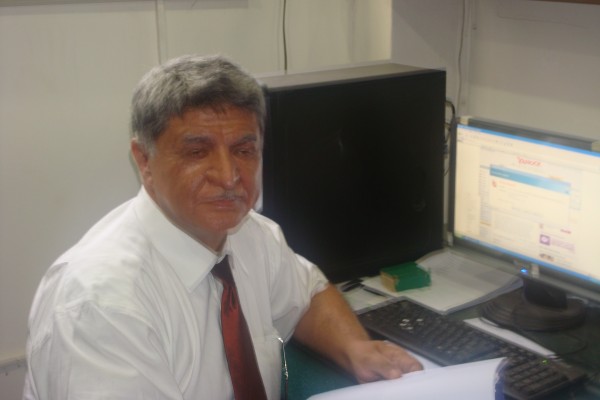
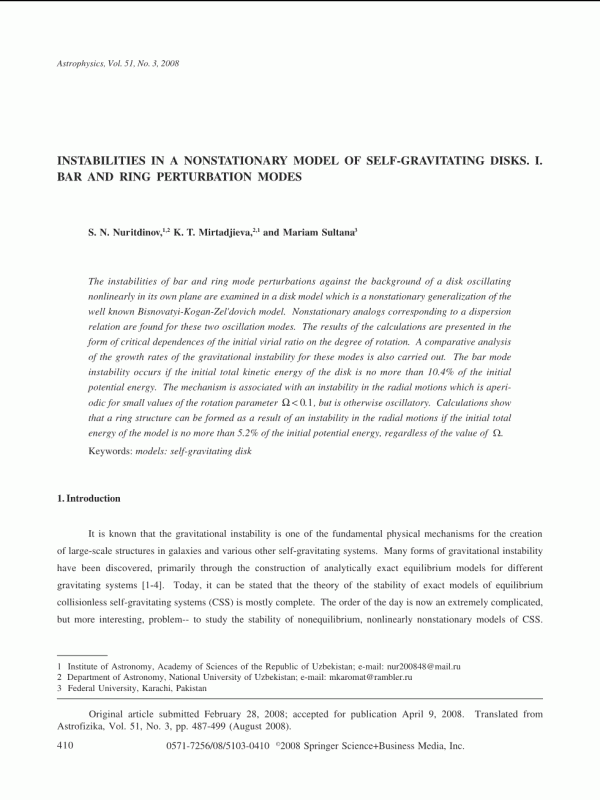
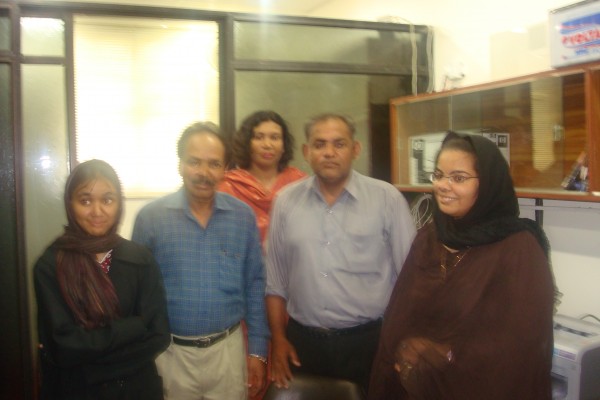
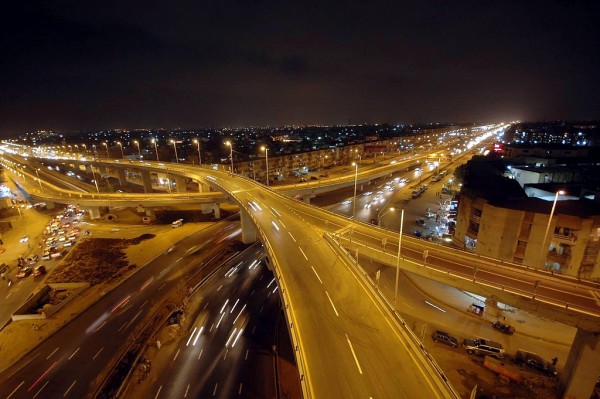
According to Wiki Mariam Sultana’s claim that: “The astrolabe was invented by a Muslim woman Maryam.” Is untrue.
An early astrolabe was invented in the Hellenistic world in 150 BC and is often attributed to Hipparchus. A marriage of the planisphere and dioptra, the astrolabe was effectively an analog calculator capable of working out several different kinds of problems in spherical astronomy. Theon of Alexandria wrote a detailed treatise on the astrolabe, and Lewis (2001) argues that Ptolemy used an astrolabe to make the astronomical observations recorded in the Tetrabiblos.
And the advances to the astrolabe’s design made in the Islamic part of the world:
Astrolabes were further developed in the medieval Islamic world, where Muslim astronomers introduced angular scales to the astrolabe, adding circles indicating azimuths on the horizon. It was widely used throughout the Muslim world, chiefly as an aid to navigation and as a way of finding the Qibla, the direction of Mecca. The first person credited with building the astrolabe in the Islamic world is reportedly the 8th century mathematician Muhammad al-Fazari.
This is just great. What a special woman! Cheers to you Mariam!
Great achievement and inspiration Mariam !!!
Showing the road to many future masters of their fields.
That's a cool woman, and a great idea for a post, you should make this a monthly, or two weekly topic and interview someone, I would have been curious about what music she likes to listen to or the novels that she's reading now and why.
The internet provides such an easy access to other peoples lives, and learn about them, thanks for sharing.
An inspirational story.
One of Dr. Sultana's obstacles, which would-be scientists from many other third world countries face, is the lack of advisors in their country. Most Pakistanis (and many other nationalities) who want a Ph.D. have to go to another country to get it, and it's more common for those who are educated abroad to stay abroad, yielding yet another way for rich countries to get richer at the expense of poorer countries. (The US has benefited greatly from large numbers of Chinese graduate students, the majority of whom stay in the US. It has taken a quarter century of investment by the Chinese government to get their research institutes to a state where returning to China after getting a Ph.D. elsewhere is seen as a viable career option for Chinese.) Some countries try to recruit foreign talent, as with Dr. Nuritdinov here, but often, as in this case, difficulty adjusting to local culture and/or political climate drives that person back home.
Well done, that is a great accomplishment Mariam!
I did take exception to her comments about science and religion, acknowledging only The abrahamic based religions fits her belief pattern very well. After that, that idea holds no merit. Also, in Pakistani large cities there is no gender inequality? That would be amazing for anywhere in the world! But when I look at the picture of her with male colleagues, I notice that difference of dress. Sigh.
I have nothing but respect for that intelligence and all the incredibly hard work it took, but being smart doesn't mean you still don't make rationalizations.
Very much like Neil Degrasse Tyson, he is a personal hero, super smart, and like Mariam, has that amazing passion for science! But some of his comments on belief have been cringe inducing.
Well done Ethan!
"I notice that difference of dress. Sigh."
And over here in Blighty, if I were to walk around in a dress, I'd get some shocked stares.
Mariam Sultana, thank you for sharing your story.
It is very important that we hear specific stories about real individual people. At times I find myself drawn in by the media stereotyping; and I don't like that in myself. The only antidote that I know is to find an individual counterexample. Aha, there is an intelligent thoughtful woman; not a blank blank so and so.
I am proud for you, for your accomplishment. Well done.
Can you tell me please a little more, why the enrollment at University of Karachi 70% women and 30% men?
Is it because:
1) women are not allowed to work and hence school is OK
2) men are too involved in the daily struggle to survive and have no time for higher education
3) a higher degree does not lead to a well paying job
---- because the political system is corrupt and who you know matters more than what you know
---- the best jobs are apprenticed (even in business and engineering) to an expert
4) you said, "I would like to promote practical knowledge in Pakistan so that people can implement and apply this knowledge in daily lives. I will try to link universities with industries " Is university education mostly too abstract and not practical. If so why?
5) Is this associated with a class issue; i.e. that upper class women can't work in business but can be teachers and hence can go to university?
I assume my possible answers are incorrect; and reflect my bias rather than the way things really were/are for you in Pakistan. Wikipedia of the University of Karachi shows a full function excellent university. So if you could clarify and educate me a little more; I would appreciate it. Why 70% women?
One last comment. You say, " As far as science and religion is concerned, I don’t think there is any conflict between them."
In my opinion, religion is another form of politics. The difference between sunni and shia (for example in Iraq) is not so very different than the difference between republican and democrat (for example in the US). So my questions:
In Pakistan society, which political and religious are more pro science and which are less pro science?
And please feel free to ignore my questions and answer better appropriate ones; because you live and understand Pakistan, where as I do not. I much appreciate your sharing your story and taking the time to educate us about yourself, your career and your country.
– Noble Laureate from Yemen, Tawakul Karman
When asked about her hijab by journalists and how it is not proportionate with her level of intellect and education, she replied: “Man in the early times was almost naked, and as his intellect evolved he started wearing clothes. What I am today and what I’m wearing represents the highest level of thought and civilization that man has achieved, and is not regressive. It’s the removal of clothes again that is regressive back to ancient times.”
If a woman chooses to wear the hijab or face veil, it is her right. If she feels she can make a positive impact in society while practicing her it, then what is there to stop her? The people who see it as a barrier? Isn’t it time to realise that faults may lie on the other side of the fence? That the people who see it as a barrier may be ignorant or unaware of why Muslim women practice the hijab, and how they contribute to society?
Are you not a conservative ? Please regard Mariam's views
"You see Pakistan as it is portrayed through media and I see America as my media shows it."
In this age of twitter and blogging I don't think this is true anymore. At least it need not be true. Those who wish to get unfiltered information from foreign countries can get it in almost all cases. And quite easily. This blog post refutes the statement.
Proud 2 be my sweet sister love u n god bless u 4 ever ....
Moatrama Mariyam sultana Saheba
Salam-o-Rahmat
You are the pride of Pakistan.My hearty congratulation for your great success &achievement. Your interview is excellent.
Allah (SWT ) bless you and give you success in every step of your academic, professioal, and personal life.Jazak Allah Khair.
Xaaksaar
Syed Zia Khairabadi
Atlanta GA
USA.
Instead of discussing her work and attitude why are we discussing her dress, Pakistan and Muslim world using our limited knowledge
For Planet Earth,
Thanks for your appreciations. There may be a difference of opinion in our thought process because we belong to two completely different environments. But I'll try my best to explain how we think of it.
As I understand, you have asked me these three questions:
1.Can you tell me please a little more, why the enrollment at University of Karachi 70% women and 30% men?
In the Pakistani society (as well as in some of the western societies in my opinion), career decisions are made by financial goals. The male population usually chooses to go for those fields of studies which are more likely to make them earn well, and do so relatively quicker. Unfortunately, Natural Sciences, Arts, Linguistics (girls’ heavily populated departments of Karachi University) in Pakistan are NOT of those fields that can make you earn well. That’s why most male population chooses to (or is pressured to) go for medical, engineering or chartered accountancy etc. Remember that Karachi University is not an Engineering University (see http://uok.edu.pk/).
Please also read the comments of Eric Lund. He showed a very clear picture of educational obstacles of developing countries. I think, he closely observed it.
2.You said, “I would like to promote practical knowledge in Pakistan so that people can implement and apply this knowledge in daily lives. I will try to link universities with industries” Is university education mostly too abstract and not practical. If so why?
I feel that university knowledge here does not address the real third-world problems and what their potential solutions could be. By practical, I mean to promote research and development. For example, university knowledge would tell you how important energy is, but fails to tell you how you can generate it with low-cost green options that would be suitable in this region. Sometimes, our research projects ends due to the lack of funds.
Also, I answered in my interview that I enjoyed the teaching of MIT Professor Dr. Walter Levin. If you know him or if you either see his videos (or lectures), you can understand what I actually mean.
3.In Pakistan society, which political and religious are more pro science and which are less pro science?
As I mentioned in one of the previous answers that the two main problems of Pakistan are illiteracy and poverty. Pakistani parties (either political or religious) don't bring the people foremost. Had they knew the importance of education, and then we would have been a part of the developed world.
I think that you are comparing your country with our society .For you, religion may be a form of politics but for me, it is the basis of Knowledge. In Islam, there is no conflict between faith in God and modern scientific knowledge. For many centuries during the Middle Ages, Muslims led the world in scientific inquiry and exploration. Our Holy book, Quran, encourages people to explore the universe. There are about 750 verses in our Holy book which directly related to the creation(or formation) of Universe. For Example :
“Have not those who disbelieve seen that the heavens and the earth were once a solid mass,then we ripped apart them” (21:30)
"The sun and the moon follow courses exactly computed" (55:5).
And I hope that other Holy Scriptures teach the same .So, I believe that there is no conflict in science and religion.
I end up my message on Ethan’s quote
“Regardless of what intrinsic differences any person or group of people have from another, everyone deserves to be treated as an individual, afforded the same opportunities to pursue their passions, goals and dreams, and evaluated on the merits of their performance”
Mariam
Thank you taking the time to answer my questions. I appreciate your frankness. Once again, well done on achieving your PhD and all the best on achieving your other dreams.
And thank you for introducing me to Professor Walter Lewin. http://www.youtube.com/watch?v=7Zc9Nuoe2Ow
I checked him out on Youtube. He is an amazing teacher.
It doesn't help science or women to blind yourself to the real state of affairs. Is this the media or a fact?
http://www.nytimes.com/2012/10/10/world/asia/teen-school-activist-malal…
Sarah
It is a fact.
It is also a fact that you (pseudonym Sarah) and I (pseudonym OKThen) do not always use our full real name.
Why do you or I sometimes choose the anonymity of a pseudonym? What insignificant fear justifies our caution?
Mariam is more aware than you or I; yet she chose to be Ethan's guest. Respect her subtle courage; she is not blind.
Sarah, the real state of affairs is that Mariam has said what she knows to be true for her and the people she knows.
Why are you blinding yourself to the real state of affairs:
http://www.bbc.co.uk/news/world-africa-16568842
"Somali famine 'will kill tens of thousands'"
?
Maryam says that "Because of lack of experts in Astrophysics, I am the first Pakistani women in this field." I would like to correct there that there are already two women before her from Pakistan. She is the first who have done PhD in Pakistan. These are Tayyaba Zafar (http://lam.oamp.fr/people/article/tayyaba-zafar) and Nergis Mavalvala (http://web.mit.edu/physics/people/faculty/mavalvala_nergis.html). Mariam should update it and think about the women working away from their families and see how much they may have suffered because of being alone.
Ah, yes, of course Mariam is the cause of all those miseries.
What is the probem here?
Two women both trying to make out Mariam as some sort of moral monster.
she is a sign of pride for Karachi university as well as for our natio.n
Great Mariam , really proud of you. Please see this link about Pakistani women.We are not weak
http://www.facebook.com/media/set/?set=a.582398841781283.1073741842.117…
I am very proud of you dear sister to take that challenge. Anyway i am wish you all the best for your future
Mariam Sultana, is certainly one of the living legends, and for the few people in Pakistan, and even the world, pursuing astrophysics, she is a mentor. I am extremely grateful to Mr. Ethan for adding to the wealth of intellectual interviews, and humbled by Ms. Mariam's confident attempts to counter the stereotypes against her, wildly ranging from Pakistani politics and religion, to misogynist interpretations. As if her feat of a PhD degree in astrophysics was not enough. Indeed, words fail us all in her praise. Ma'am Mariam, may I have your email address, or any other contact info, or any blogs that you personally operate, as I am a Pakistani astronomy-enthusiast myself, and hope to achieve a career in astrophysics. I would also like to contribute my interests towards astrophysics, if you have a forum or anything for such activity. Never have I found someone whose achievements have mirrored my dreams so well, and hence I hope to receive a personal response from you, or the administrators of this blog who can lead me to Ms. Marium. Kind regards and gratitude.
Maryam
Maryum Muddasir, You can email me at maryzafar@gmail.com
and thanks all of you
Madam we all are proud of you. Pakistani women are the most intelligent and hardworking in entire world. We have so many example infront of us. God bless you all. Wish you best of luck for your future assignments. Regards
heyy advice plz zshould i take astro physics cani get universities in islamabad if so tell me the jobs (i am a girl )
Pakistan! Is proud on you .You have now shown
me my way.You are a great inspiration for whole
Pakistan that we have to come in this feild an
shine the stars of our fate brightly.In my view
we should enter in every feild .But in pakistan
many people wants to be a doctor or an engineering
but no one comes in this feild .I want to say that
people have to come forward in this feild.I congratulates
You veryyyyyyyyyyyyyyyyyyyyyyyyyyy much:) ;) .You are our pride.
respected madam i got pleasure after deeply studied about your passion, hard working and great achievement.this is my humble request to you please conduct a seminar in our university about your field to aware all the students about this field. this seminar will be fruitful for all students and it will provide a gracious chance for students to connected with there practical life. i i am your student student sabir hussain from fuuast.
HO! HA! Sabir,
Ever you see the madam for teaching in your class without Notes? Even simple question Newton Repson formula(NRF) she attempt with guide book.